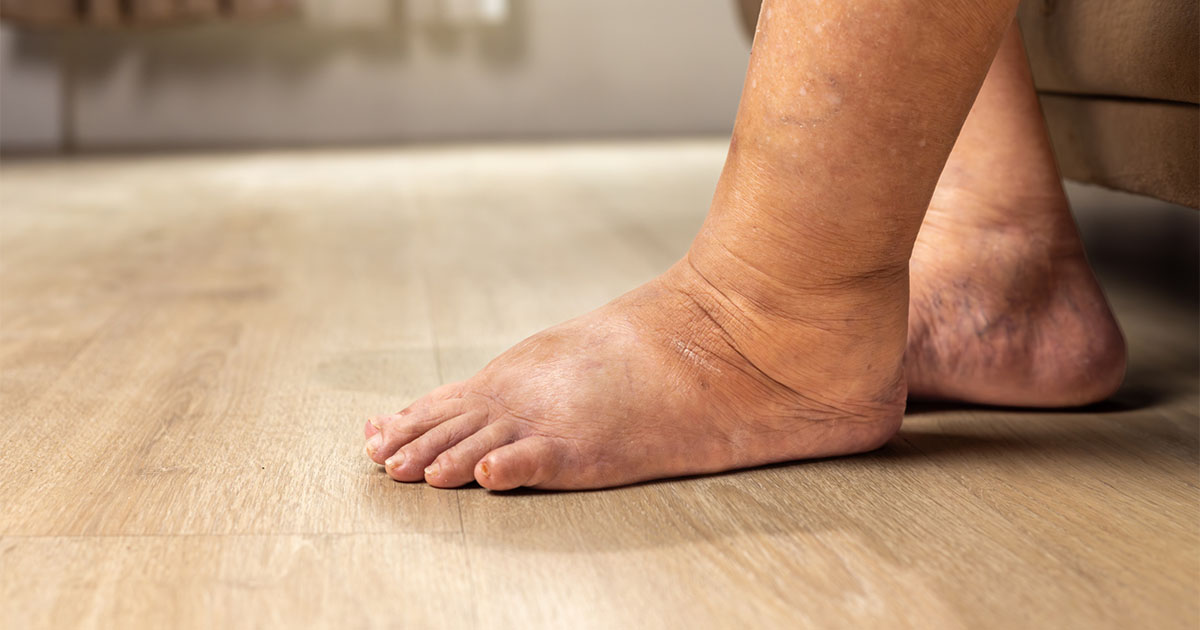The STEP (Semaglutide Treatment Effect in People with obesity) clinical trial programme is investigating the impact of semaglutide (a GLP-1 receptor agonist) on weight reduction in adults with obesity or overweight, irrespective of the presence of type 2 diabetes, when administered subcutaneously at a higher dose of 2.4 mg weekly.
STEP1
STEP1 explored the impact of semaglutide versus placebo in a population of obese or overweight individuals with at least one associated weight-related comorbidity, but not type 2 diabetes. Notably, around 40% of the trial population had evidence of pre-diabetes.
STEP1 published its results in February 2021 in the New England Journal of Medicine (Wilding et al, 2021). It demonstrated a near 15% mean reduction in body weight from baseline over 68 weeks with semaglutide 2.4 mg, plus lifestyle advice and 4-weekly counselling, compared with a 2.4% reduction in the placebo group. The change in body weight from baseline to week 68 was −15.3 kg in the semaglutide group, compared with −2.6 kg in the placebo group.
Moreover, a third of individuals in the semaglutide group lost at least 20% of their baseline weight.
Adverse effects were broadly as expected for the GLP-1 receptor agonist class, with mild-to-moderate nausea and diarrhoea most common. More participants in the semaglutide group discontinued treatment than with placebo, mainly owing to gastrointestinal adverse effects (7% vs 3.1%).
STEP2
STEP2 compared the efficacy and safety of semaglutide 2.4 mg weekly with the standard 1 mg dose of semaglutide weekly and also placebo in people living with type 2 diabetes who were either overweight or obese.
STEP2 published its results during March 2021 in The Lancet (Davies et al, 2021). It demonstrated significant mean reductions in body weight from baseline of 9.6%, 7% and 3.4% with semaglutide 2.4 mg, 1 mg and placebo, respectively, over 68 weeks. 69% of individuals taking semaglutide 2.4 mg achieved a clinically meaningful 5% reduction in body weight, compared with 57% in the semaglutide 1 mg group and 29% of individuals who received placebo.
Moreover, there were improvements demonstrated in quality of life and cardiometabolic risk factors, such as blood pressure and glycaemic control. Specifically, HbA1c reduced by 1.6%, 1.5% and 0.4% with semaglutide 2.4 mg, 1 mg and placebo, respectively.
As with STEP1, the safety profile of semaglutide at both doses was consistent with the GLP-1 receptor agonist class as a whole. Mild-to-moderate gastrointestinal adverse effects were reported by 64%, 58% and 34% of individuals taking semaglutide 2.4 mg, 1 mg and placebo, respectively.
STEP3
STEP3 explored the impact of semaglutide 2.4 mg versus placebo in overweight or obese people with related comorbidities, but not type 2 diabetes, alongside intensive behavioural therapy with an initial low-calorie diet for 8 weeks (1000–1200 kcal/day). Intensive behavioural therapy consisted of 100–200 minutes of physical exercise weekly and 30 individual behavioural therapy visits with a registered dietitian who discussed diet, physical activity and behavioural strategies.
STEP3 published its results in February 2021 in JAMA (Wadden et al, 2021). Once again, it demonstrated after 68 weeks of treatment a superior reduction in mean body weight from baseline of 16% with semaglutide 2.4 mg vs 5.7% with placebo, when both combined with intensive behavioural treatment, as above. More individuals treated with semaglutide lost a clinically meaningful 5% of baseline body weight compared with placebo (86.6% vs 47.6%).
Gastrointestinal adverse effects were, again, most common, with treatment discontinuation owing to these effects in 3.4% of the semaglutide group and no-one in the placebo group.
Conclusion
Semaglutide 2.4 mg has demonstrated superior results in terms of weight reduction in the STEP clinical trial programme compared with any previous weight-loss medication to date, irrespective of the presence of type 2 diabetes. The closest comparator was the SCALE randomised controlled trial, which compared a higher dose of liraglutide 3 mg daily to placebo in individuals with obesity, but not type 2 diabetes (Pi-Sunyer et al, 2015). It demonstrated a mean reduction in baseline bodyweight of 7.5% with liraglutide versus 4% with placebo after 56 weeks, alongside counselling on lifestyle modification.
Interestingly, the yet-to-report STEP8 randomised controlled trial is a head-to-head trial, comparing semaglutide 2.4 mg, liraglutide 3 mg and placebo in overweight or obese individuals living with type 2 diabetes.
The weight loss demonstrated with semaglutide 2.4 mg appears to be similar in magnitude to weight loss after certain bariatric procedures, such as sleeve gastrectomy, and perhaps it might be prudent in future for all individuals considering bariatric surgery to first have a trial of semaglutide, based on the compelling results above.
To read the studies in full, click on the following links: STEP1, STEP2, STEP3





